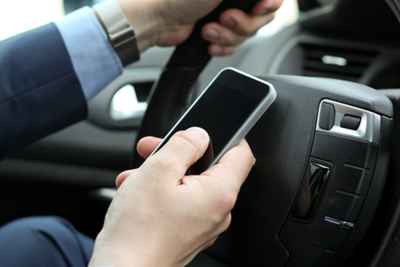Common sense must prevail over our knee-jerk reaction to respond to a text, email or phone call from work.
We are in an era where we seem to be constantly connected to our work through our phone and other mobile devices. Companies may even pay for all or part of the expense of our communications services. In turn, when a call or message comes into us, we feel some obligation to answer it, anywhere and everywhere. This can be a horrible decision.
Driving a car is a great example of when not to lose focus. According to the National Highway Traffic Safety Association (NHTSA), in 2014, 3,179 people were killed, and 431,000 were injured in motor vehicle crashes involving distracted drivers.
Communications technology has tried to respond to distracted driving by offering “hands free” options. As the American Association of Justice states in their article The landscape of distracted driving
Many new vehicles are equipped with voice-activated systems that allow drivers to select music, adjust climate controls, use GPS and navigation systems, make and receive phone calls, send and receive text messages, and interact with social media—all while driving.
Ironically, we have two hands, but, only one brain. So, what is being freed is not the main problem.
Many of us believe we are great at multi-tasking. Papers have been written, however, that demonstrate we are not as agile as we may think we are. It takes time for our brains to switch our focus from one area of interest to another. While switching back and forth, we are in a mental limbo. The time lost switching our focus accumulates – creating a total amount of lost time that makes a tremendous difference.
The distraction of having a phone conversation, even if on a hands-free device, causes drivers to miss the important visual and audio inputs that would ordinarily help avoid an accident. Driving is too critical of a time to risk losing focus.
We should also be aware of the men and women rebuilding our roads and bridges. These workers are perilously close to the road. A split second can make all the difference between a catastrophe and that worker later going safely home to the family. Our previous post about the St Patrick Day celebrations states that “Distracted driving can be common as the fun progresses. However, the road construction workers will still be finishing their work before they too can join in the fun.”
Hands-free does not free our brains from trying to do two things at the same time. Consider the fact that we may not be the multi-tasker we think we are. Even the newest technology does not protect us from a potentially disastrous result. And that disastrous result may effect not just us, but also, the other people on and around the road we are on.
If you are looking to improve the traffic safety around your home or business, contact us at Traffic Safety Direct.
